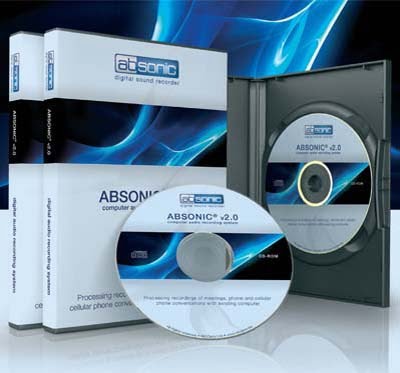Support for GPs with ABSONIC voice recording system
Infocommunication system/solution to support the daily work of GPs, with a special focus on the security of online patient management in the context of a virus epidemic
The virus outbreak is putting a significant strain on the daily work of GPs and their assistants, not least because of online patient management, but it is also challenging patients.
The current and common operation consists of the following basic telecommunications elements:
- The doctor's office has an analogue or ISDN or VoIP telephone trunk line on which patients can call the office, the doctor and/or the assistant (for example, to fill a prescription).
- Doctors have a mobile phone on which patients can call the GP directly, or the assistant can mediate between doctor and patient, but the GP can also transfer the mobile to the doctor's office line.
- So it's important that there is a known telephone number for the practice and perhaps a known mobile number for the doctor, which is important to keep unchanged for patients.
- It should be known that conversations are usually not recorded, which can cause serious health and legal problems closely related to human life, if in a critical situation the patient and the doctor and/or the assistant remember something differently, which can only be prevented/resolved by proper information protection.

Proposal for a sample system integrated with speech recording and speech recognition
A sample proposal for an integrated system with speech recording and/or message recording and automatic speech recognition:
- the telephone number of the practice does not change
- the doctor's public mobile phone number remains unchanged for patients
- the office must be equipped with the following units:
- a reliable, branded 3/8 electronic telephone exchange (there are no encouraging data on the reliability of cheap Chinese, Indian products)
- one of the trunk lines of the PBX would be connected to the existing telephone line of the practice, where the patient could speak to the doctor (if in the practice) and/or the assistant
- a GSM adapter (fixed mobile phone) would be connected to the other main line of the PBX, which would contain the doctor's existing SIM card, so that the doctor can be called directly from this if his mobile number is public
- the PBX requires a telephone device for the assistant (system hand-set), which can be used for transferring calls and conference calls, and which allows the assistant to:
- transfer an incoming call from a patient to the office phone to a phone on the doctor's desk in the practice and then leave the call
- transfer the patient's call to the doctor's mobile phone and at the same time leave the conversation if the doctor is not in the office
- set up a conference call with the doctor and the patient, including the doctor in the office, so that three people are in the conversation
- set up a conference call with the doctor's mobile phone when the doctor is not in the office, so that three people are in the conversation
- a simple telephone set on the doctor's desk in the practice
- an extension GSM terminal adapter (a fixed mobile phone requiring a new SIM), which would connect to an extension of the PBX. This is a new subscription and is intended to:
- when calling the doctor's existing number known to patients, calls are automatically forwarded to the doctor's new number via the GSM terminal adapter on the extension
- the assistant can transfer the call to the doctor or make a conference call to the doctor on his/her mobile phone if he/she is not in the office
- a dual-channel ABSONIC adapter (our own production) for automatic recording of conversations on the fixed telephone line and/or on the doctor's mobile, connected to the two main lines of the telephone exchange
- ABSONIC software, with around 800,000 lines, for automatic recording of conversations on the landline and/or the doctor's mobile phone, which also provides an answering machine solution for out-of-office times. At the time of recording and message recording, a configurable announcement warns the caller that the conversation is being recorded. Of the recorded conversations, non-relevant private conversations can also be deleted, subject to a permission control system, with automatic logging of recording and deletion. The activity log file is protected against modification. In principle, it is also possible to allow the assistant and the doctor to manually switch which conversations are recorded, but this may be a concern for information protection purposes.
- a computer configured for automatic voice recording, if the existing computer in the practice cannot be used for this purpose, for example a BAREBONE computer (small, 7×24 hours, no hard disk and no fan).
- the current dedicated card in the GP's mobile phone will be replaced by a new prepaid card, which will allow callers on the current number and the assistant to be automatically reached via a call centre connected to the GSM terminal adapter (fixed mobile) that manages the existing mobile number.
- with their new subscription, GPs can log in to the call centre with a number they already know and that patients already know. You can program the system to record only the doctor's mobile calls during office hours or other times. It can also be programmed to record only incoming calls (usually from patients and assistants). Irrelevant or private calls can be deleted by the doctor and/or assistant, if they are authorised to do so, so that the fact of deletion is logged. If the doctor has not issued a mobile number to patients or has issued it but wishes to separate private and patient calls, the new mobile number could be used for private calls, which will not be recorded and the old number would remain for patient calls.
- recorded calls can be automatically deleted after a specified period or after archiving to external storage.
- depending on the telephone service provider, both the calling and called numbers are recorded, along with the date and start and end times and/or duration of the call, which can be manually annotated with the patient's name and a brief diagnosis. A versatile search of this data is also provided.
- statistics can be generated from the data of recorded conversations
- recorded conversations can be copied with authorisation and logging
- create an internal phonebook of calling and called numbers
- can be measured and statistics can be generated on the entry time of incoming calls after the first ring, i.e. the waiting time of the calling patients.
- the ABSONIC system also allows the doctor to record and speech recognized dictation, with the caveat that the recognition of certain medical terms will be less accurate. This requires a microphone optimised for speech recognition or a special controller with microphone.
- the ABSONIC system has been tested by the National Security Supervisory Authority and found suitable for handling classified data due to its versatile encryption and data protection solutions.
- with a Microsoft Azure or Google online speech recognition registration or subscription (1 hour for about 500 HUF), phone conversations can be displayed in quasi real time, in character, automatically on a monitor or projector and simultaneously transcribed and automatically saved. Depending on the interlocutors, the environment of the interlocutors, the quality of the telephone lines, etc., the accuracy of the transcriptions can be between 70-90%, the percent of error that can be reduced by manual correction afterwards if necessary.
- The system requires 3 new mobile subscriptions, which can be purchased from Vodafone services for a total gross monthly fee of HUF 17,000.
- a reliable, branded 3/8 electronic telephone exchange (there are no encouraging data on the reliability of cheap Chinese, Indian products)
Depending on the possibilities and needs of each GP district, the preliminary cost of the systems is estimated at around HUF 200,000-1,000,000 gross (depending on the needs and options, including installation, per GP practice, which may require a grant or other central funding).
We are in the process of negotiating with Vodafone, where a package of services could significantly reduce the above amount.
Other than the previous ones, almost any infocommunication solution is possible, which we will prepare in the form of a proposal based on your individual needs, see our typical product prices: www.absonic-ict.eu







